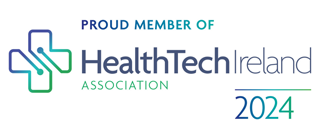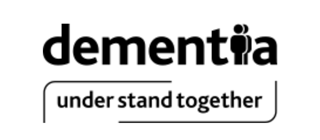.png?width=1200&name=what%20is%20smart%20technology%20blog%20(1).png)
As technology advances, Assistive Technology is rapidly moving into the consumer mass-market and becoming increasingly popular in the healthcare industry.
Assistive Technology is an umbrella term for any device or solution that helps maintain or improve an individual’s independence and supports with their activities of daily living. Examples of Assistive Technology can range from communication aids to cognitive or memory aids.
Why has Assistive Technology expanded in the healthcare sector?
The World Health Organisation (WHO) has predicted that globally currently 2.5 billion people need one or more assistive product, validating the demand for Assistive Technology Devices. There are various reasons why there is a growing demand for Assistive Technology, one being the rapidly growing aging population. The 2022 Health in Ireland report shared that Ireland has the fastest aging population in Europe, and an aging population is not just tied to Ireland. By 2023, 1 in 6 people in the world will be aged 60 years or over.
Assistive Technology can be a cost-effective long-term solution towards delivering home healthcare and is another reason why the technology has become increasingly popular. With increasing demands on healthcare professionals and a shortage of hospital beds, Assistive Technology can provide the following benefits;
- Aids clinical prioritisation
Assistive Technology allows for improved prioritisation of clinical staff because virtual care reduces the requirement for home visits, without compromising on the quality of care the patient receives.
- Reduces prolonged hospital stays
Assistive Technology allows clinicians to collect vital signs including blood pressure, without the need for the client to remain in an acute hospital setting. This means that patients who are physically well enough to return home, can do so, with the peace of mind that they are still under the care of a health professional, who will be able to make data-driven decisions around their health.
- Supports individuals with additional needs to live at home independently.
Many different people can benefit from the support of Assistive Technology, this may include; older people, people with physical or intellectual disabilities or those living with a chronic illness.
How will Assistive Technology impact the future of home healthcare?
Digital innovation will be the future of healthcare, and as we move into 2024 and beyond, we will see the rapid expansion of services and products that focus on promoting independence and giving patients the tools, they need to feel empowered, to take control and manage their care.
‘Personalised Care’ is a term that will become increasingly popular within the healthcare industry. ‘Personalised Care’ is providing opportunities for people to take control of their care. Involving individuals in the decision-making around their own care and treatment, can lead to better outcomes and a positive experience for the individual. Assistive Technology can be considered one aspect of personalised care, as the technology solution can often be tailored towards each individual’s specific needs.
Assistive Technology, including Remote Patient Monitoring (RPM) is predicted to grow in popularity, a recent survey showed that 81% of clinicians in the US are currently using RPM with their patients.
HaloCare offers a holistic approach to healthcare, working across the three pillars of wellness; Safety, Social & Wellbeing & Clinical to ensure clients are able to live independently and safely at home.
HaloCare also keeps clients socially connected through digitally inclusive technology, that's easy to use. Interested in finding out more about Assistive Technology and HaloCare? Get in touch today









